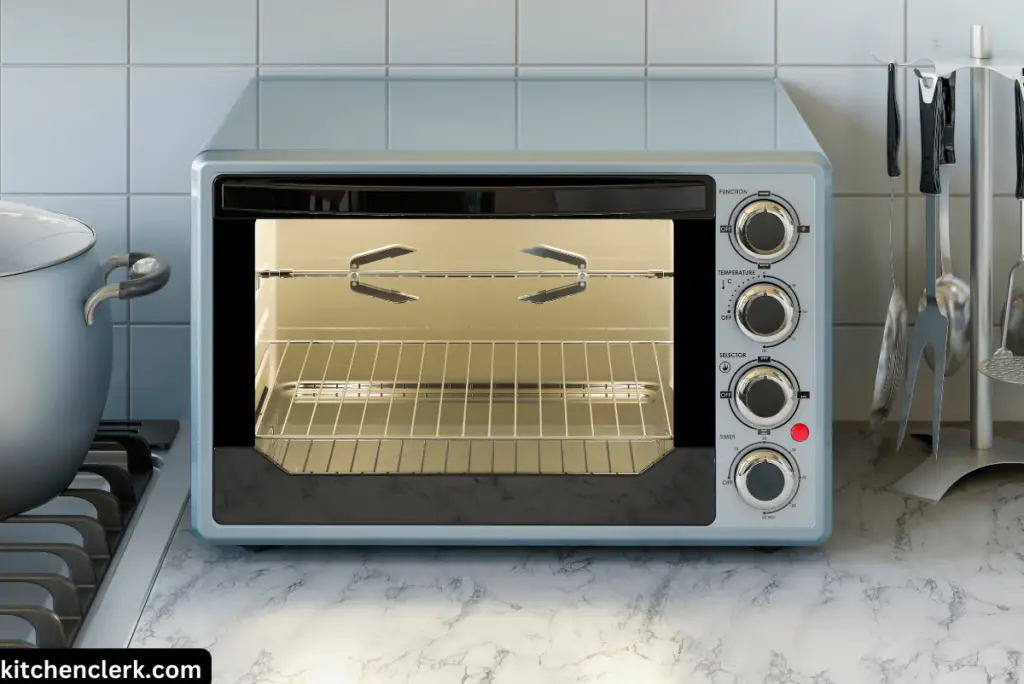Are you in the market for a new oven but unsure whether to go with a gas or electric oven? It’s a common dilemma faced by many homeowners and cooking enthusiasts. As someone with years of experience in the kitchen, I understand the importance of choosing the right appliance to suit your cooking needs.
That’s why in this comprehensive guide, I will walk you through the pros and cons of gas ovens and electric ovens, helping you make an informed decision.
Whether you prioritize precise temperature control, energy efficiency, or ease of maintenance, this article will provide all the information you need to choose between a gas oven and an electric oven.
Pros and Cons of Gas Ovens

Pros:
- Superior baking performance and precise temperature control.
- Quick heating and broiling capabilities.
- Lower long-term energy costs due to the affordability of gas.
- Minimal maintenance requirements.
Cons:
- Requires a gas line installation, which can be costly for some kitchens.
- Limited availability in areas without access to natural gas.
- Heat may not be as evenly distributed as in electric ovens.
- Gas ovens can be a potential safety hazard if not properly maintained.
Pros and Cons of Electric Ovens

Pros:
- Even heat distribution for consistent cooking results.
- Better moisture retention, resulting in moister dishes.
- No need for a gas line installation, making them accessible in various locations.
- Improved energy efficiency in modern electric ovens.
Cons:
- Longer preheating time compared to gas ovens.
- Higher energy costs compared to gas ovens.
- Heating elements require regular cleaning and occasional replacement.
- Potential maintenance costs associated with heating element replacement.
Gas Oven vs Electric Oven
1. Cooking performance
Gas ovens are known for their superior cooking performance, particularly when it comes to baking. The direct flame in a gas oven provides instant and precise heat distribution, allowing for even baking and consistent results. This is especially important for delicate dishes such as soufflés and pastries, where precise temperature control is crucial.
On the other hand, electric ovens offer more even and consistent heat throughout the cooking chamber. Heating elements in electric ovens are placed at the top and bottom, ensuring that the heat is evenly distributed. This makes electric ovens well-suited for dishes that require uniform cooking, such as casseroles and roasts.
2. Energy efficiency
When it comes to energy efficiency, gas ovens have a distinct advantage. Gas is generally a more affordable fuel source compared to electricity, which can result in lower energy costs over time. Gas ovens also heat up faster than electric ovens, which means less preheating time and overall energy consumption. However, it’s important to note that gas ovens may require a gas line installation, which can add to the initial cost.
Electric ovens, while not as energy-efficient as gas ovens, have made significant advancements in recent years. Electric ovens do not require a gas line installation, making them more accessible for those without access to natural gas.
3. Maintenance
Gas ovens are relatively low-maintenance appliances. They don’t require as much cleaning as electric ovens since there are no heating elements to worry about. However, cleaning the burners, ports, and other gas components regularly is important to ensure optimal performance and safety.
Electric ovens require more maintenance compared to gas ovens due to the presence of heating elements. The heating elements can collect food debris and spills, which can affect their performance and even cause them to malfunction.
Which is Better: Gas Oven or Electric Oven?
The decision of whether a gas oven or an electric oven is better for your kitchen ultimately depends on your individual needs and preferences. Here are a few factors to consider when making your decision:
- A gas oven may be the best choice if you prioritize precise temperature control and quick preheating. An electric oven could be the better option if you prefer even heat distribution and moisture retention.
- Gas ovens are generally more energy-efficient in terms of long-term costs, but modern electric ovens have made significant advancements in energy efficiency.
- Gas ovens may require a gas line installation, which can add to the initial cost. Electric ovens are more accessible in locations without access to natural gas.
- Gas ovens have fewer heating elements to maintain but require regular cleaning of the burners and gas components. Electric ovens require more cleaning and occasional heating element replacement.
In Conclusion
Both gas ovens and electric ovens have their own strengths and considerations. Gas ovens offer superior baking performance and faster preheating times, making them ideal for avid bakers and those who value energy efficiency. On the other hand, electric ovens provide more consistent cooking results, better moisture retention, and easier maintenance.
I hope this comprehensive comparison, along with the pros and cons of each option, has been helpful in guiding your decision-making process. If you have any further questions or need assistance choosing the right oven for your kitchen, please leave a comment below.
Which type of oven do you prefer in your kitchen, gas or electric? Let us know in the comments below.
